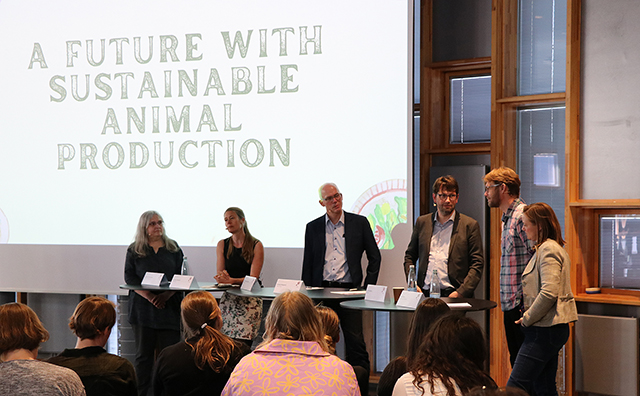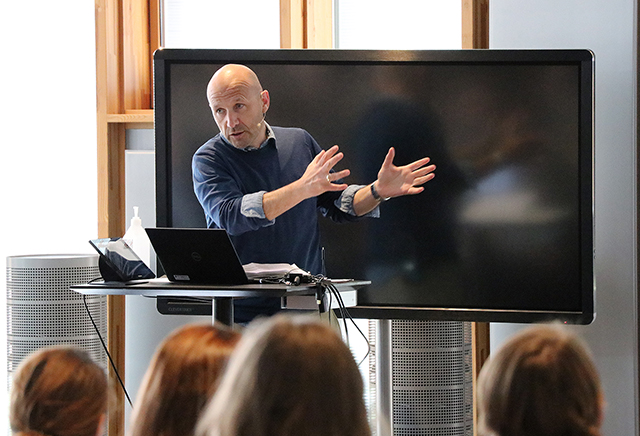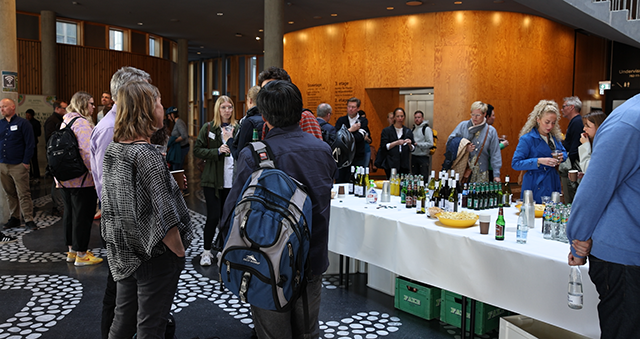Seminar, 22 april 2022
On April the 22nd, the ”Scenarios for Sustainable Animal Production in the Future” network held its first seminar.
More than 100 participants signed up for the event. They came from several Danish and foreign universities, NGO’s, other organizations, the agricultural industry and governmental organs and ministries.
 Speakers included directors from Danish Agriculture and Food Council (DAFC), a campaign leader from Greenpeace, directors from Arla and Danish Crown, and a member of the think tank Concito.
Speakers included directors from Danish Agriculture and Food Council (DAFC), a campaign leader from Greenpeace, directors from Arla and Danish Crown, and a member of the think tank Concito.
Director for environment and sustainability in DAFC, Anette Christiansen, presented a grand overview of a future with sustainable animal production seen from the viewpoint of the Danish animal industry, focusing on the UN sustainability goals and their visions for how the Danish food cluster may contribute with healthy, safe and sustainable food to Denmark and the world.
Campaign leader in Greenpeace, Kristine Clement, focused on the resource use and impact of contemporary animal production, and she outlined a set of guiding principles for how animal production may be sustainable.
Director for Cattle production, DAFC, Ida Storm, presented the status of Danish cattle/dairy production with regard to sustainability, presented synergies between plant-based and animal-based food production and the effect of current production systems on biodiversity, among other things.
Director in Danish Crown, Nicolaj Nørgaard, presented the status of Danish pig industry with regard to sustainability and presented how past development and future actions aim to create a sustainable future for Danish pig production.
Director in Arla, Peter Langborg Wejse, presented Danish dairy production and talked about the carbon footprint of dairy production in different parts of the world, and how this footprint may be minimized.
Tavs Nyord from the think tank Concito, focused on the enormous meat consumption in the industrialized world but also pointed out that livestock production will play a significant role in future agriculture although focus must be directed towards emissions and land use, and therefore we need to focus on efficiency in the production systems.

The entire afternoon including the panel debate was led by journalist for Danish Radio and Television, Adam Holm.
The afternoon ended with a cup of coffee and/or a glass of wine and plenty of opportunity to discuss and share thoughts and ideas for both speakers and audience.

